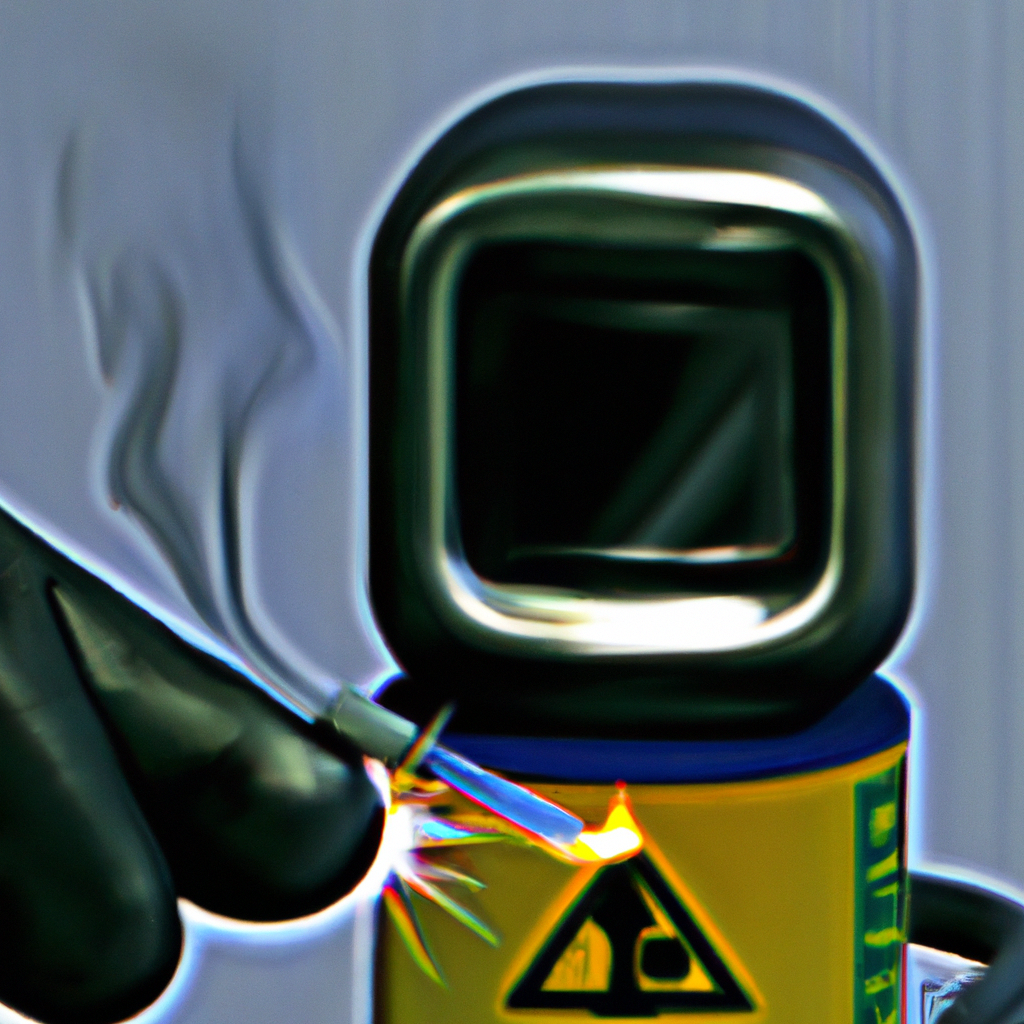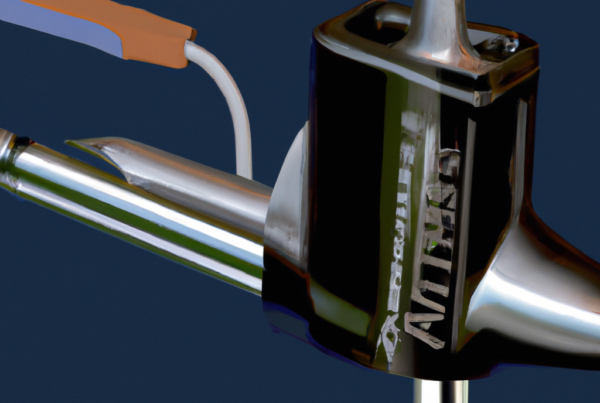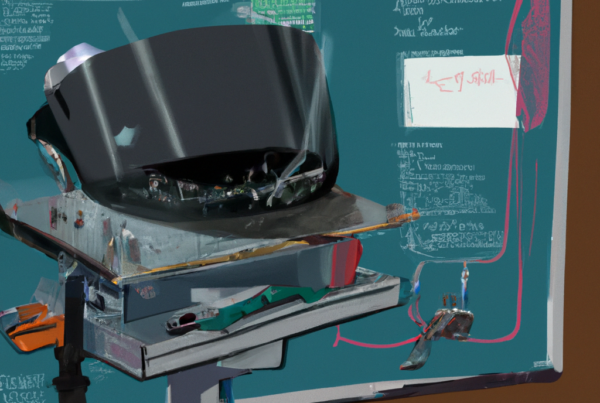Welding is an incredibly important and useful skill, but it can also be dangerous. One of the most common dangers is the risk of electrocution. Though it might not seem possible, welders are at risk of being electrocuted if they don’t take the proper safety precautions. Knowing how to weld safely is important, and understanding the risks is the first step. It’s essential to take the necessary precautions to protect yourself from the risk of electrocution. We will take a look at what it takes to weld safely and how to protect yourself from electrocution.

What is welding and how does it work?
Welding is a fabrication process that joins materials, usually metals or thermoplastics, together by using high heat to melt the parts together and allowing them to cool, forming a permanent bond. It can be done with either gas flame, electric arc, laser beam, electron beam, friction, ultrasound, or a combination of these techniques.
The most common welding process is arc welding, in which an electric arc is used to generate heat and melt the metal together. This process can be done with either a gas flame or an electric arc. The most commonly used gas flame is acetylene, while the most common electric arc is MIG welding. Both of these processes require the use of protective gear, such as safety glasses, a face mask, and protective clothing.
Can a welder electrocute you? Yes, welding can be dangerous and can cause electric shock if the equipment is not properly grounded or if the welder does not wear the necessary protective gear. Sparks from the welding process can travel through ungrounded metal and cause electric shock, and the intense heat generated by welding can cause serious burns. Therefore, it is important that welders always wear the appropriate protective gear when welding and that equipment is properly grounded.
In what ways can welding be hazardous?
Welding can be hazardous in several ways. Firstly, it involves working with high temperatures and extreme light radiation, which can cause severe burns and eye damage. Secondly, welding can produce toxic fumes, gases, and dust that can be harmful to the respiratory system. Thirdly, welding involves working with electrical currents, and if not done correctly, it can cause electric shocks and electrocution. Lastly, welding can be dangerous if proper safety measures are not taken. This includes wearing proper clothing, eye protection, and face shields to protect against sparks and debris.
Can a welder electrocute you? Yes, welding can lead to electric shock and electrocution if proper safety measures are not taken. In order to protect against electric shock, welders should always wear dry, insulated gloves and use insulated tools and cables. Additionally, they should ensure that all electrical equipment is properly grounded and that the welding area is free of moisture.
What is electrocution and how does it relate to welding?
Electrocution is a fatal injury caused by electric shock. It occurs when a person comes into contact with an electrical current that is too strong for their body to handle. In welding, it is possible for a welder to experience electrocution if they are not using the correct safety precautions.
Electrocution is a serious risk for welders, as welding requires the use of electricity and metal. The combination of these two elements can create a powerful electric current, which can be fatal if not handled properly. To prevent electrocution, welders must take the proper safety precautions such as wearing protective clothing, using insulated tools, and never touching metal parts while they are energized.
Can a welder electrocute you? Yes, if the necessary safety precautions are not followed. Welders must always be sure to use insulated tools, wear protective clothing, and never touch metal parts that are energized. If any of these safety measures are not followed, there is a risk of electrocution.
What safety precautions should welders take to protect themselves from electrocution?
Welders must take precautions to protect themselves from electrocution. The following safety measures should be taken to reduce the risk:
- Always wear protective gear, including a welding helmet, protective gloves, a welding jacket, and safety glasses.
- Maintain a well-ventilated work area to reduce the risk of inhaling toxic fumes.
- Inspect all cables and welding equipment before use to ensure they are in good condition.
- Keep all electrical cables away from water and other liquids.
- Do not touch any part of the welding machine while it is in use.
Welders should also avoid working in damp or wet environments, as this increases the risk of electrocution. Additionally, any exposed metal on the welding machine should be covered to reduce the chance of electric shock. Welders should always be mindful of their surroundings and take all necessary safety precautions when working with electricity.
Are there any welding processes that pose a greater risk of electrocution?
Yes, certain welding processes can pose a greater risk of electrocution than others. These include:
- Arc welding – This process uses an electric current to create an electric arc between the welding rod and the metal being welded, which creates a lot of heat. If the current is too high or the arc is not properly shielded, the welder can be electrocuted.
- Metal Inert Gas (MIG) welding – This process uses a wire to feed the welding rod through a nozzle and into the metal. If the current is too high or the nozzle is not properly grounded, the welder can be electrocuted.
- Flux-Cored Arc Welding (FCAW) – This process uses a flux-cored wire to feed the welding rod through a nozzle and into the metal. The flux-cored wire has a higher current than other welding processes, so if the nozzle is not properly grounded the welder can be electrocuted.
In all welding processes, it is important to follow safety protocols and use proper safety equipment to reduce the risk of electrocution. This includes wearing appropriate clothing and protective gear, using the correct welding rod and current settings, and following all safety instructions.
Are welding machines designed to minimize the risk of electrocution?
Can a welder electrocute you? The short answer is yes, but with the right safety measures in place, the risk of electrocution is significantly minimized. Welding machines are designed with a number of safety features to keep welder and others safe from electric shocks and other hazards.
To protect against electrocution, welding machines are designed with the following features:
- Ground Fault Interrupters (GFIs): GFIs detect any unexpected leakage of electricity, and shut off the machine automatically before it can cause any harm.
- Insulated Cables: Welding machines are designed with insulated cables that protect against electric shocks.
- Protective Gear: It is important to wear protective gear such as gloves, helmets, and fire-retardant clothing when welding.
These safety features are designed to minimize the risk of electrocution and other hazards. However, it is still important to follow safety procedures when welding to ensure your safety and the safety of others.
What are the potential consequences of electrocution for welders?
Welders can be at risk of electrocution if they fail to take safety precautions while using their welding equipment. Electrocution can cause serious physical harm and even death, and potential consequences of electrocution for welders include:
- Temporary or permanent paralysis
- Burns from electricity passing through the body
- Heart damage
- Neurological damage
- Organ damage
- Death
Due to the danger of electrocution, welders should always make sure they are using the proper safety equipment and following all safety protocols while welding. Safety equipment such as insulated gloves and welding helmets can help protect welders from electrocution.



